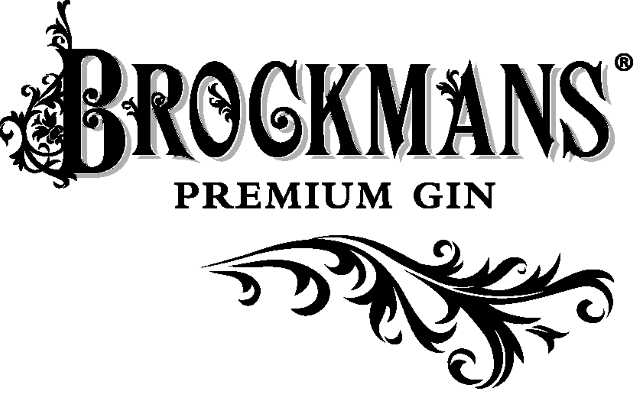How To Win The War On Talent – Responding To The Year Of Resignation

OVERVIEW
‘Resign culture’ is threatening stability in the drinks trade, warns headhunter Cesium, which urges brands to rebuild the ethos that made them successful

THE RECRUITMENT challenge facing the global drinks sector is having an impact at all levels, including senior managers, directors and c-suite, warns specialist head-hunter Cesium Group.
In the wake of the pandemic, Cesium is seeing a new ‘resign culture’ in the sector, with more senior staff switching roles in response to higher salary offers, which in turn threatens the stability and succession planning of drinks brand owners and distributors.
Paul Haslam, CEO of Cesium, says: “Most of the media focus has been on the recruitment problems being seen at junior level, namely supply chain and production. In the UK, the Office for National Statistics reported a record 1.2 million job vacancies in the three months to November, with the number of vacancies having increased across all industries. In the US, they’re calling 2021 the year of ‘The Great Resignation’ as millions of people change jobs.
Similar issues are being faced by drinks businesses around the world, as job-support programmes end, and slower vaccine roll-outs in some regions continues to have an impact, compounded by the threat of the new variants. “However, our concern is that there is also considerable job instability at mid and senior level in drinks businesses of all kinds – whether that’s family-owned players, regional distributors or global brands,” says Haslam. “Many people have been working remotely during the pandemic, which diminishes levels of employee engagement. In this ‘resign culture’, moving on rather than moving up is seen as the best route to career progression.”
Cesium Group is inviting key HR representatives from the drinks industry to take part in a Thought Leadership Workshop on Thursday, 24 February to share good practice and discuss ways of working

TRENDS IDENTIFIED BY CESIUM INCLUDE:
- An increase in mid-level employees at the £40,000-£80,000 salaried level switching jobs, reacting to unprecedented demand for talent as economies grapple with 6% GDP growth. Combined with the effects of aggressive restructures in the early phase of the pandemic, this is stretching organisations’ capability to deliver. This is, in turn, driving a general salary uplift as people negotiate improved pay and conditions when moving jobs. In effect, the demand for talent is significantly outstripping supply in what has become a candidate-driven market.
- Increased demand for experienced, entrepreneurial, agile leaders, able to deal with ambiguity and work effectively in challenging and unpredictable market conditions. This is prompting significant movement of people at senior manager and board level across the globe.
- An increase in disengaged employees working from home at one extreme, and unrealistic expectations of flexible working at the other. Both mindsets combine to erode company culture and diminish levels of employee engagement.
Haslam adds: “It’s clear from my conversations with many contacts and clients, that over the past 18 months people’s expectation of greater flexibility in their working lives has become stronger than ever. Organisations will have to invest in new ways of working, and particularly in recruiting and retaining talent. A recent YouGov Survey shows that fewer than four in 10 employees want to leave their house to go to work.
“In terms of staff retention, there’s always a certain amount of talent movement in the drinks sector, and we play a part in that. We believe the whole industry benefits from cross-fertilisation and shared best practice.
“However, the increased rate of movement we’re seeing is potentially a problem for many businesses. The incentive for companies to invest in the career development of their mid-level employees is reduced if their retention rate is low.
“At senior level, consistency, continuity and succession planning all suffer if too many of the leadership team are changing roles. Instability at the top is quickly felt right through the business.”
TEAM BUILDING
Cesium advises that, alongside recruitment, drinks companies now need to step up their focus on team building and retention. “Investing in building deeper and more meaningful relationships – in effect an emotional contract – within the team is essential to drive engagement and productivity.”

Cesium Group ‘creates value through people’ through a combination of executive search at a global level as well as developing bespoke and highly effective leadership and development programmes tailored to meet specific organisational needs. With sessions delivered virtually or face to face, employees are engaged with honest and clear communication, leaving them inspired and motivated.
“There’s no quick fix here,” says Haslam. “The whole world has changed, and we’ve all been wearing masks: literally and figuratively. Many drinks businesses will have to rebuild the ethos that made them successful, along with their company culture and high-performing teams critical to success, in what ultimately is a relationship-driven industry. That takes time, but the work can start immediately.”

About Cesium Group
Cesium Group is a boutique headhunting and HR consultancy working across the beers, wines and spirits categories, both globally and in the UK.
We take the best elements of process and structure from the big international search firms and HR consultancies, but redefine them in a more agile, authentic and immersive way. The result? Better than best practice that has a positive impact on the bottom line of our clients.
To discuss the points raised in the article, register your interest in future thought leadership events or enquire about our track record and capabilities, please contact our MD, Paul Haslam, via email at paul.haslam@cesiumgroup.com, by telephone on +44 (0) 20 7870 3792 or visit www.cesiumgroup.com



















